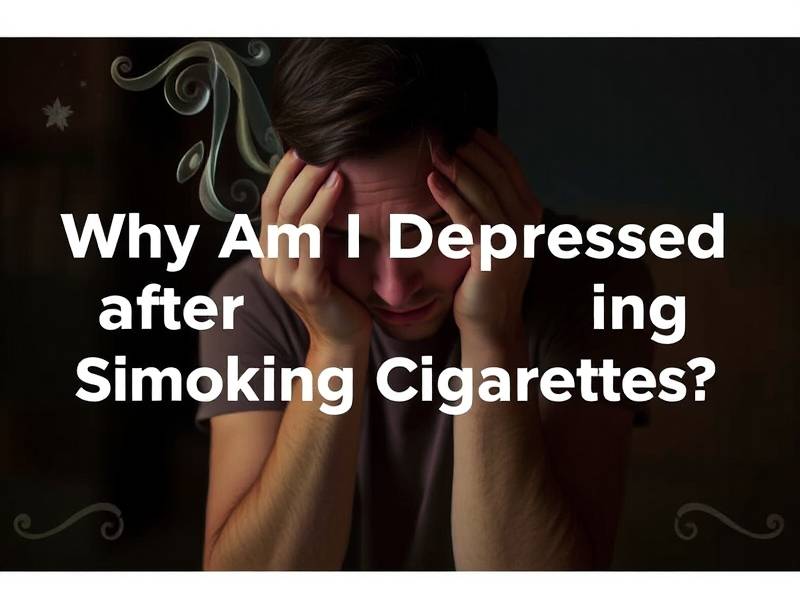Why Am I Depressed After Quitting Smoking Cigarettes?
Navigating the Emotional Labyrinth: Understanding Depression After Quitting Smoking
Introduction: Quitting smoking is a significant milestone in one's life, symbolizing a healthier lifestyle and newfound freedom. However, for many, the journey to becoming smoke-free is not without its challenges. One common concern that arises among ex-smokers is experiencing depression post-quit. In this article, we delve into the reasons behind this emotional turmoil and provide insights to help you navigate through it.
Understanding the Link Between Smoking and Depression

-
Nicotine as a Temporary Fix: Nicotine, the primary addictive substance in cigarettes, acts as a stimulant in the brain. It temporarily elevates mood by increasing levels of dopamine, a neurotransmitter associated with pleasure and reward. When you quit smoking, this sudden withdrawal can lead to feelings of sadness or depression.
-
Withdrawal Symptoms: Quitting smoking triggers withdrawal symptoms that can mirror those experienced during other substance withdrawals. These symptoms include irritability, restlessness, anxiety, and difficulty concentrating—conditions that can exacerbate feelings of depression.
The Psychological Aspect of Quitting Smoking
-
Loss of Routine: Smoking often becomes an ingrained part of daily routines, such as having a cigarette after meals or during breaks at work. Quitting smoking means breaking this routine and adapting to new habits, which can be mentally taxing and contribute to feelings of loss or sadness.
-
Coping Mechanism Loss: For some individuals, smoking serves as a coping mechanism for stress or anxiety. Without this crutch, they may struggle to find alternative ways to manage their emotions, leading to heightened feelings of depression.
How to Cope with Post-Quit Depression
-
Seek Support: Joining a support group or seeking counseling from professionals can provide you with valuable guidance and emotional support during your journey towards quitting smoking.
-
Establish New Habits: Replace smoking habits with healthy alternatives such as exercise, meditation, or hobbies that can help distract you from cravings and alleviate stress.
-
Maintain a Healthy Lifestyle: A balanced diet and regular exercise can boost your mood by improving your overall well-being and providing natural energy boosts.
-
Practice Mindfulness: Mindfulness techniques like deep breathing exercises or yoga can help you stay grounded and focused on the present moment, reducing anxiety and depression symptoms.
Conclusion:
Experiencing depression after quitting smoking is not uncommon but doesn't define your journey towards a smoke-free life. By understanding the underlying factors contributing to these emotions and adopting strategies to cope with them effectively, you can overcome this challenge and continue moving forward on your path to better health and well-being. Remember that seeking support from friends, family members, or professionals is crucial in navigating through these emotional ups and downs successfully.

